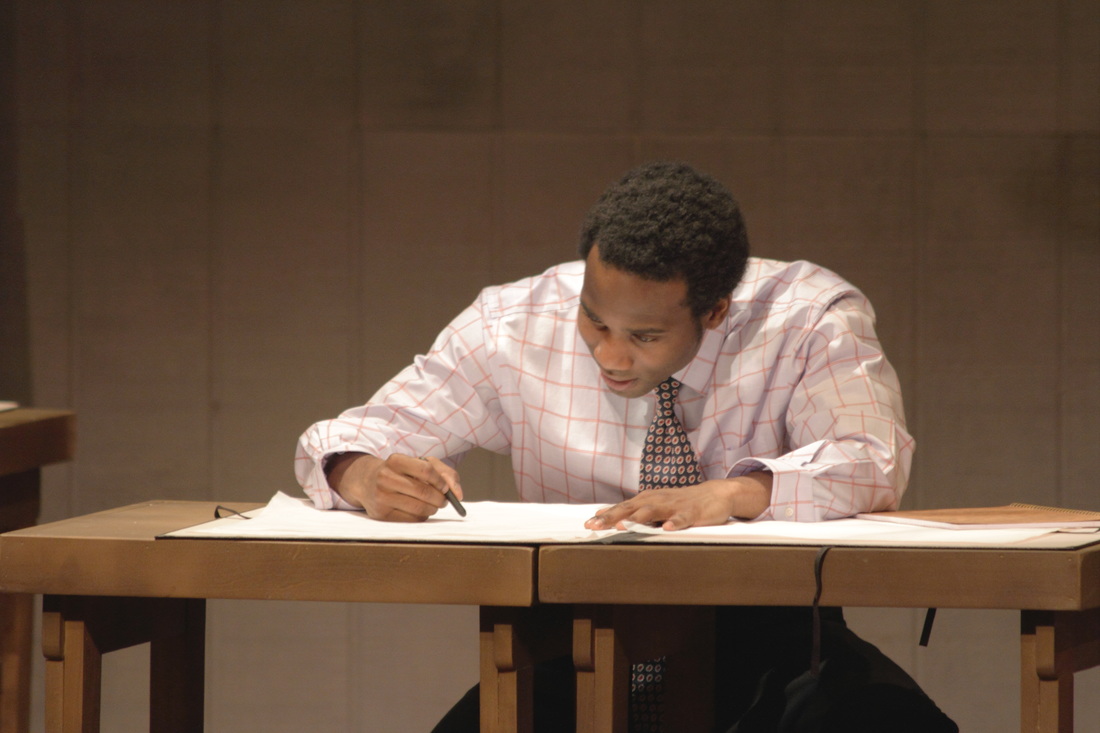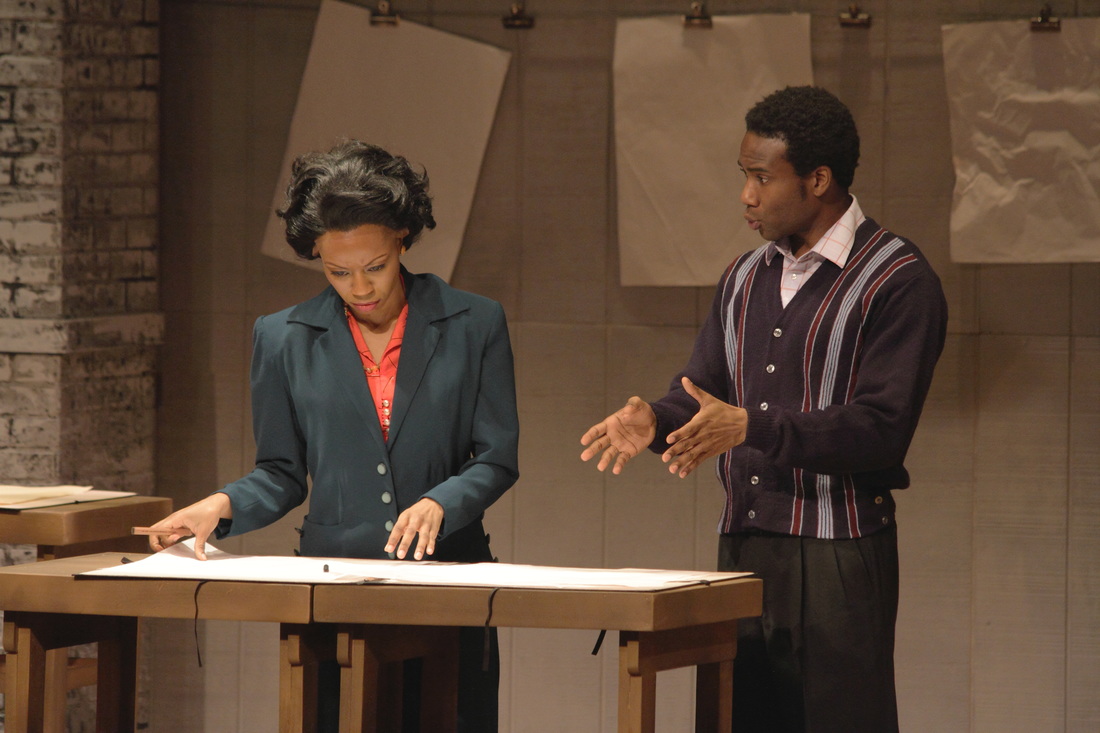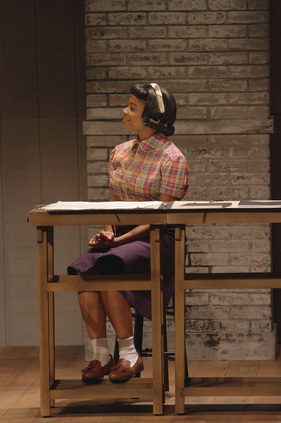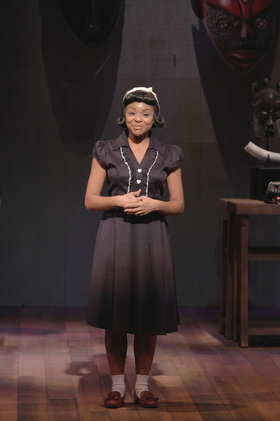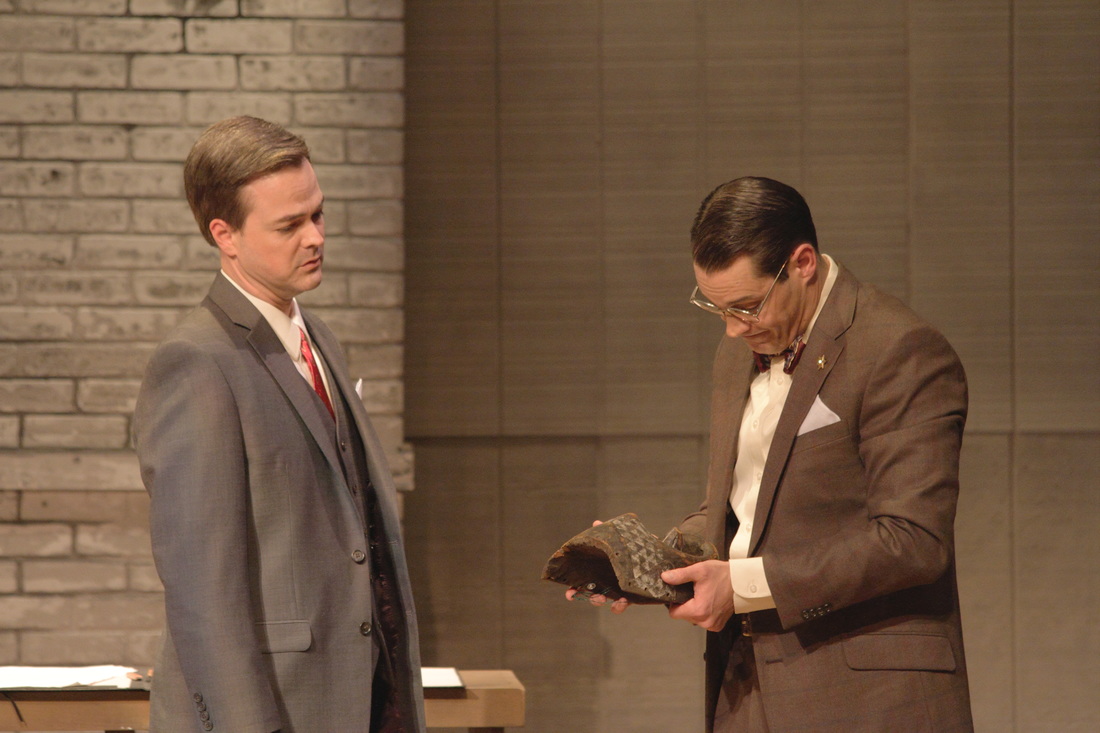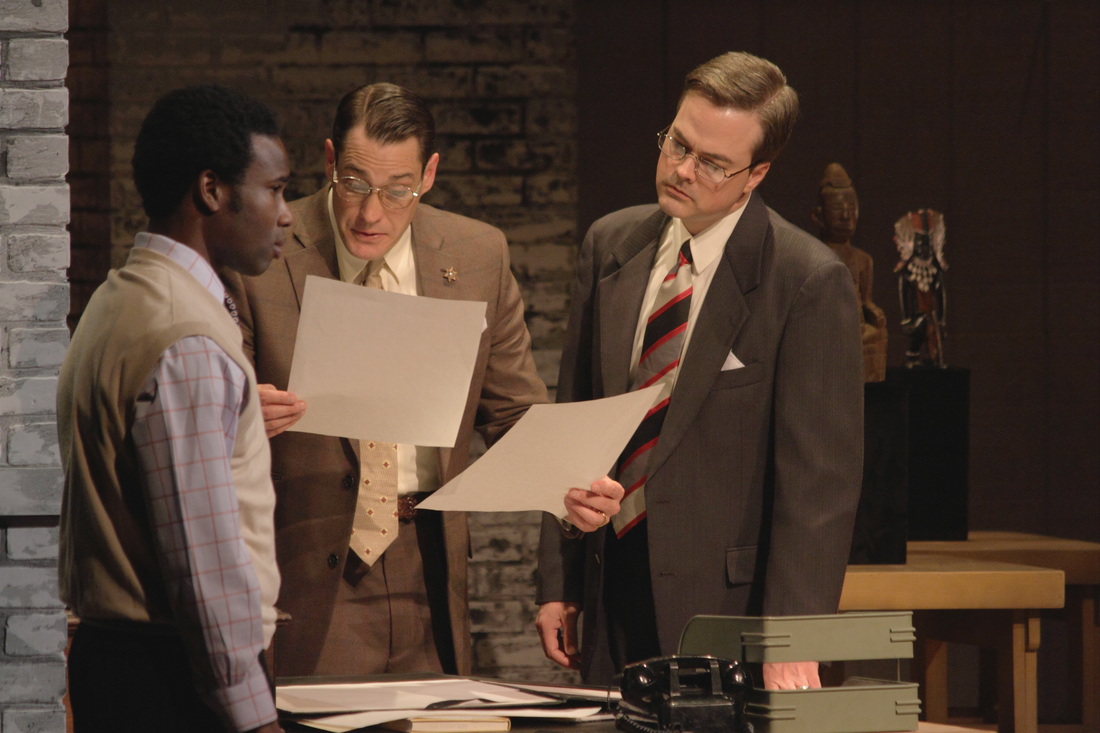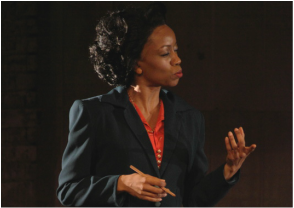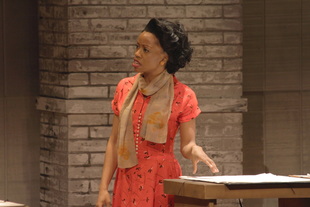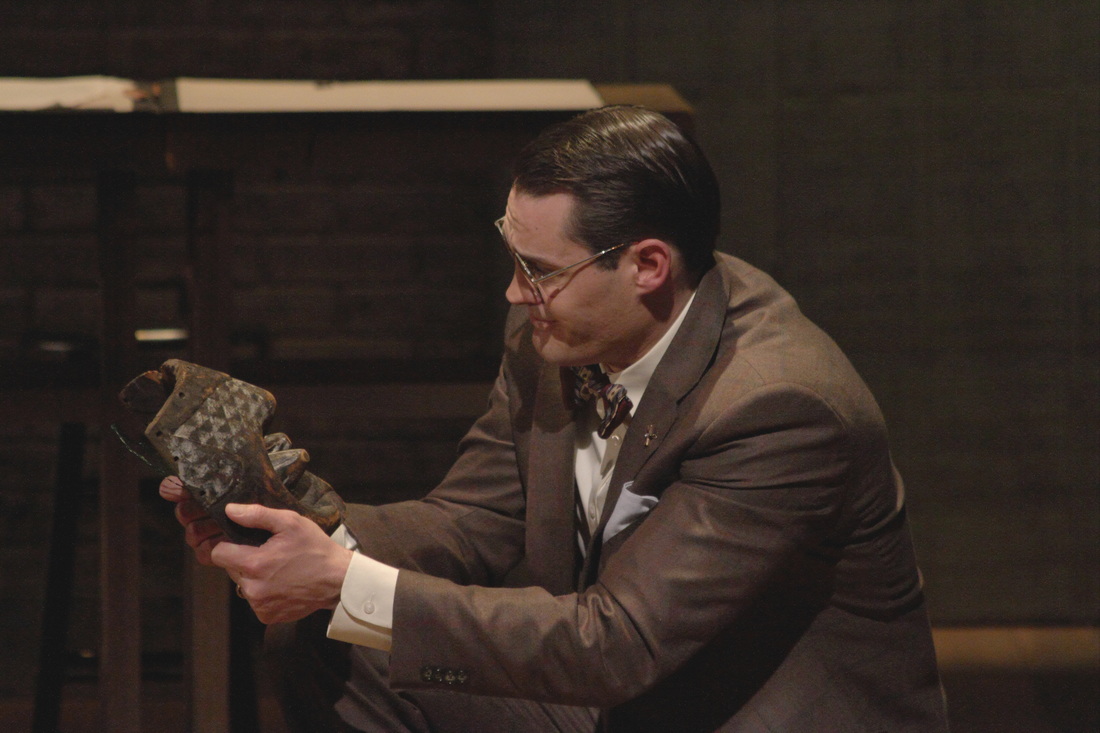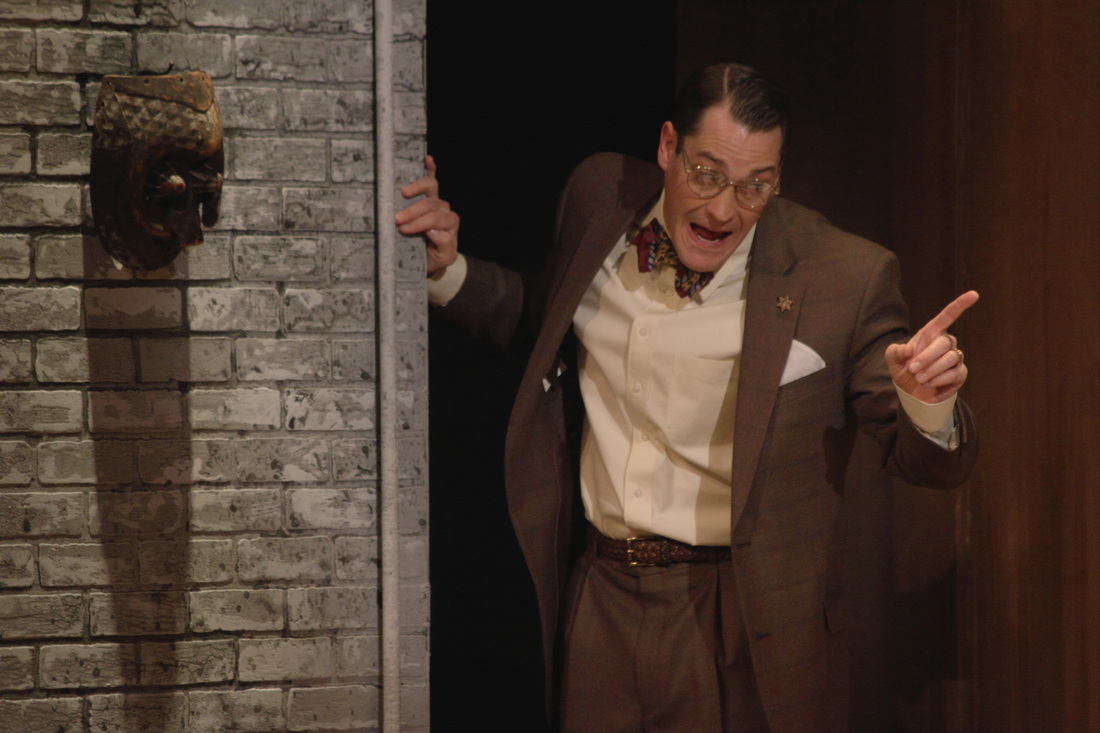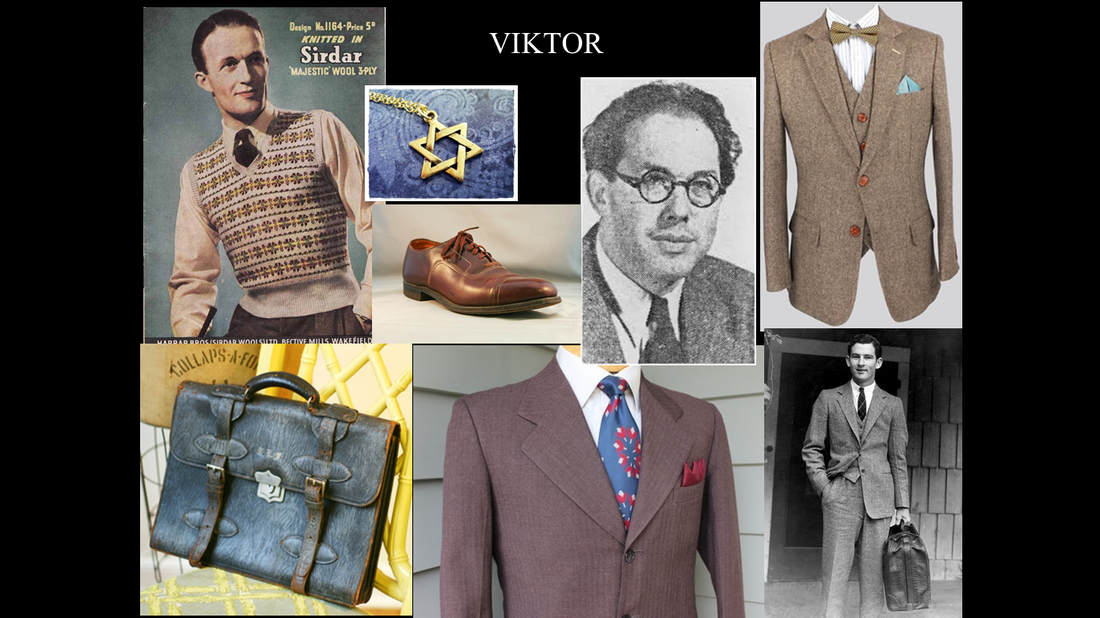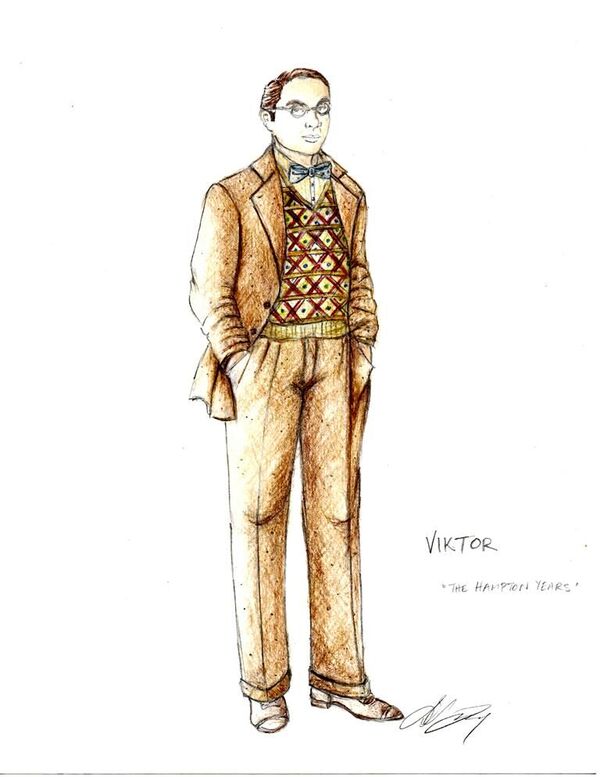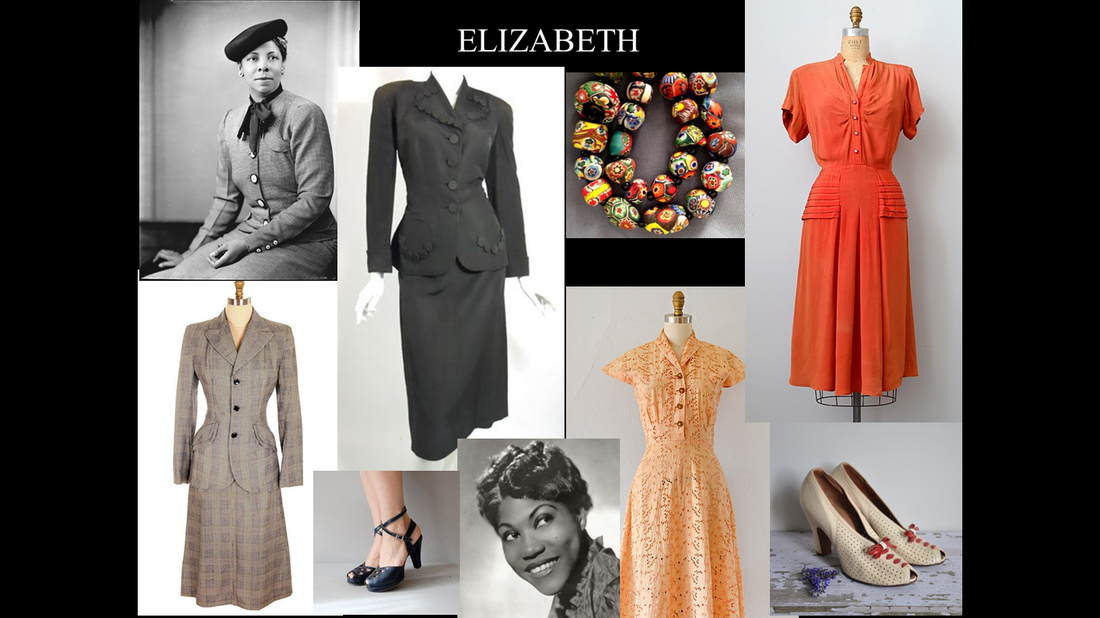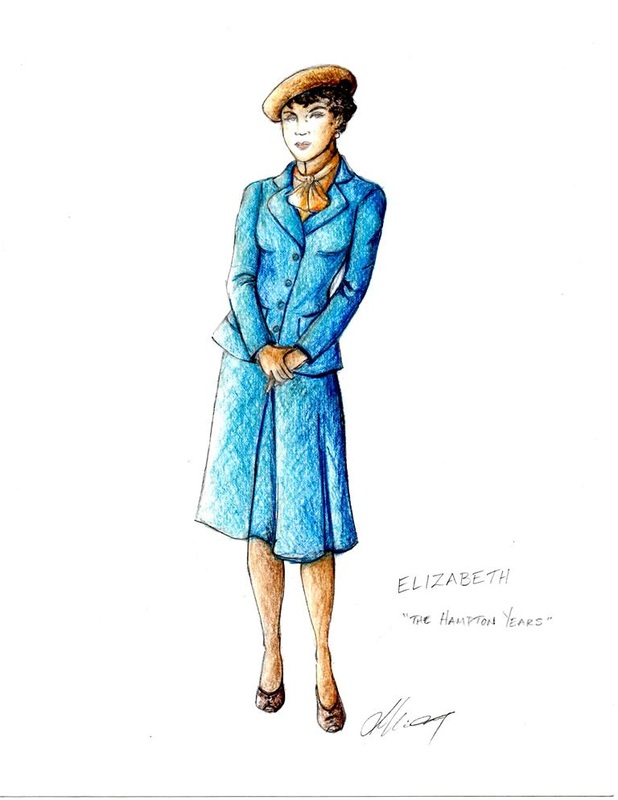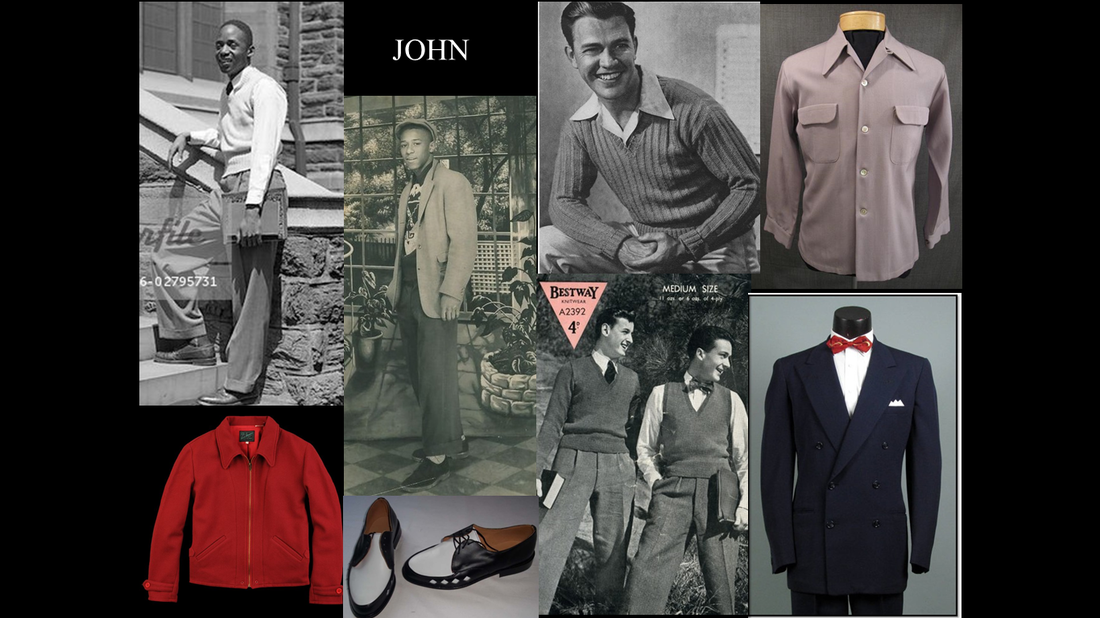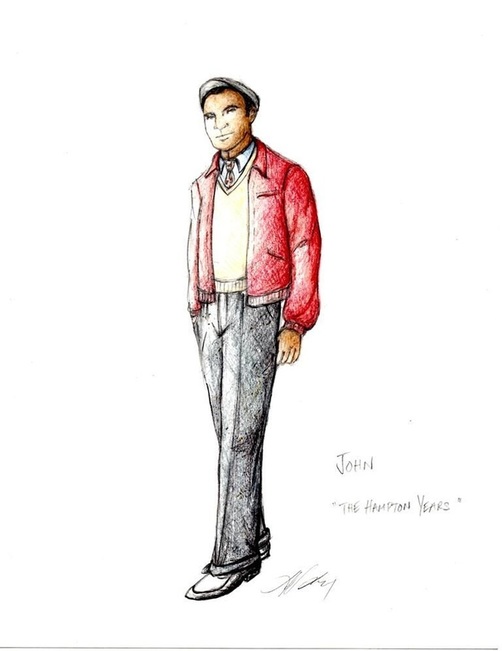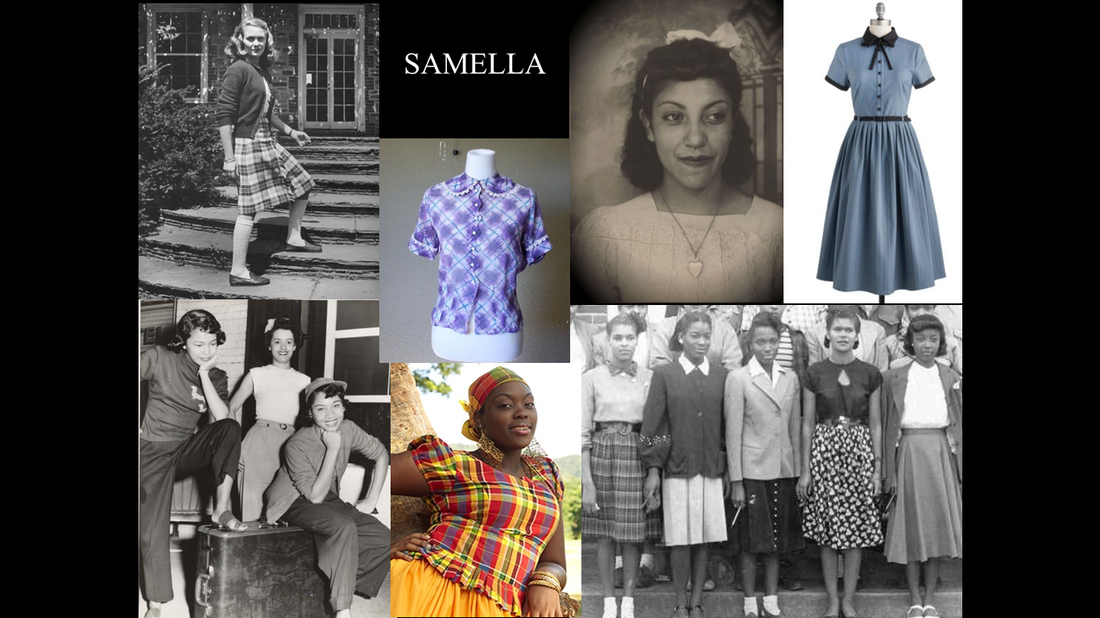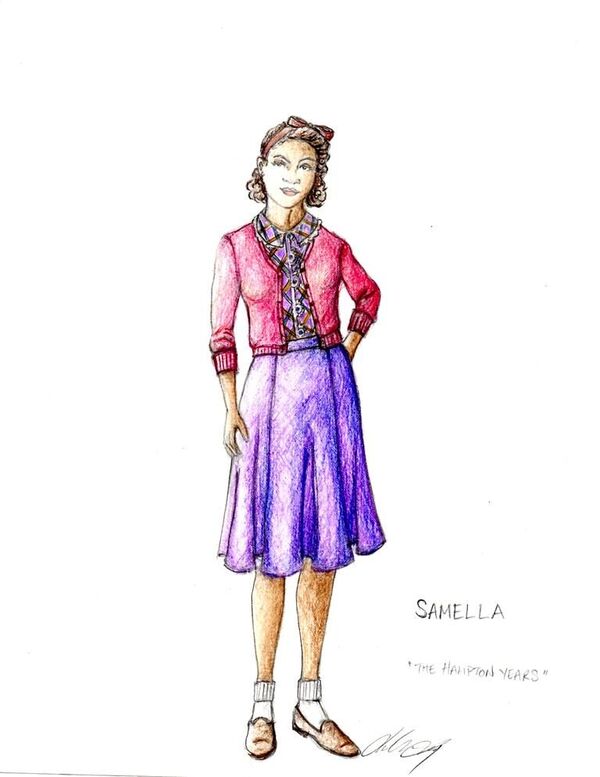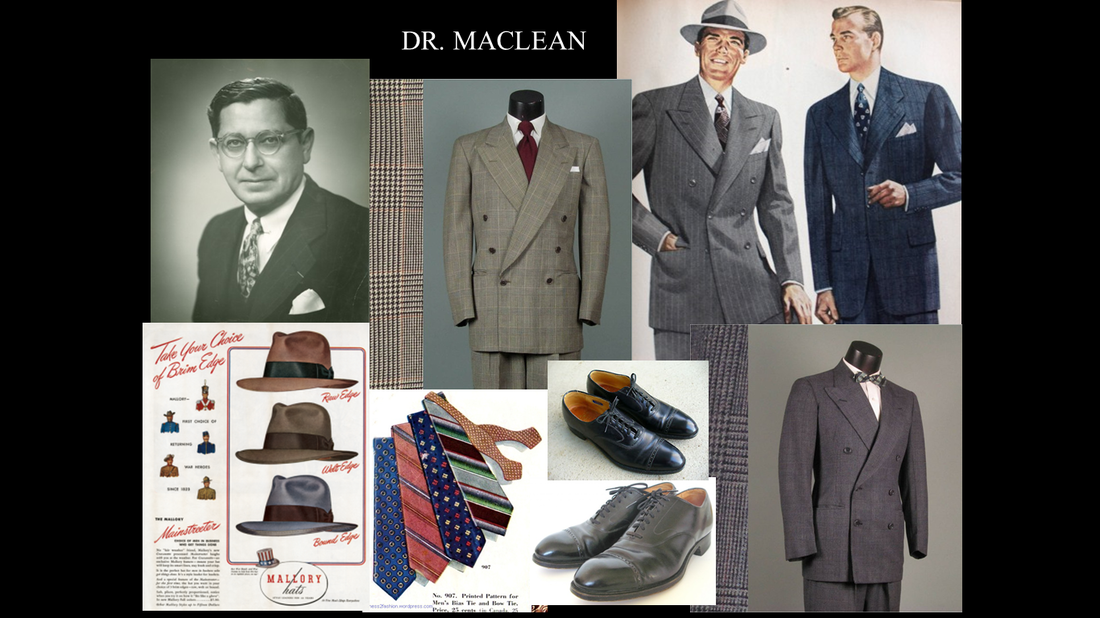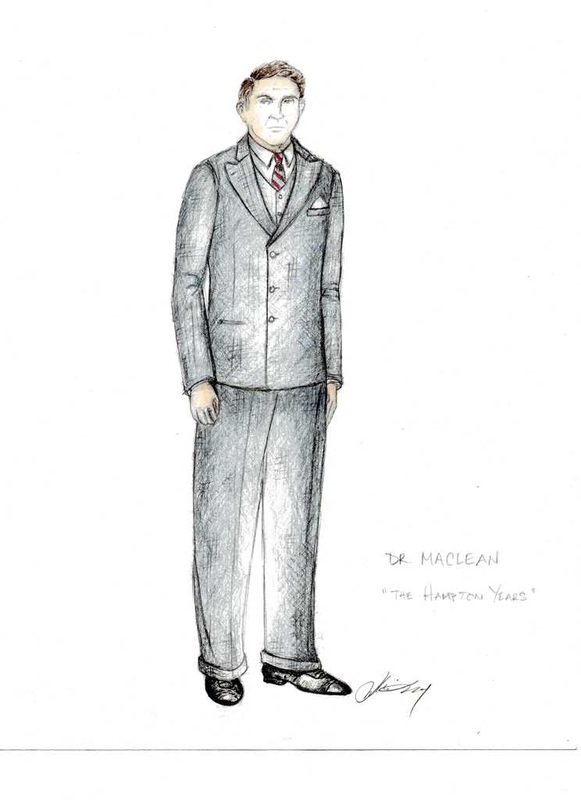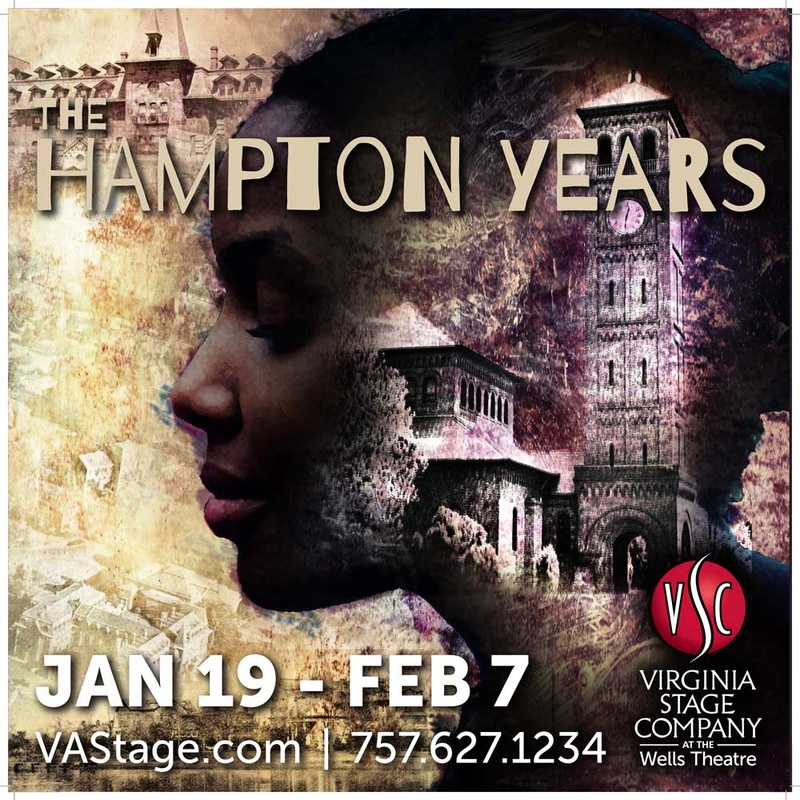The Hampton Years: The Power of Art - Thoughts from VSC's Interim Artistic Director Patrick Mullins1/21/2016  Being partnered to someone who also makes his living in the arts, art is a common topic of discussion at our house. A discussion that often leads to more questions than answers. What is art? Who gets to make it? Who determines what it is worth? Who pays for it? Should it be free? Who decides what is art? Who decides what is “good art?” Should art really be for everyone? When it saturates the mainstream, is it still art, or has it become commercialism? If it has an obvious agenda, is it still art? CAN ART REALLY CHANGE THE WORLD??? So. Many. Questions. When Chris presented Jacqueline Lawton’s play for consideration for the season, I was excited by the opportunity to explore these questions further, as well as an opportunity to learn a little about these incredible painters, sculptors, and educators who had spent time in Hampton Roads. If you have never been to the Hampton Museum, please do yourself the favor of visiting their extensive collection on the gorgeous Hampton University campus. It truly is a “do not miss” in Hampton Roads and their extensive collection includes work from all of the artists featured in the play.
0 Comments
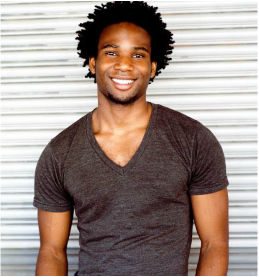 JACQUELINE LAWTON: To begin, why did you decide to get into theater? Was there someone or a particular show that inspired you? W. TRÉ DAVES: I got into theatre at the encouragement of my high school theatre directors. I was a shy, sensitive kid in South Houston. Although I was a pretty strong athlete, I was pretty realistic about the fact that I wasn't elite. I also understood that sports clubs weren't my true community. I wanted to be funky and hang around girls all day. And if necessary, I wanted to be able to cry in front of friends without ridicule. JL: Set in Hampton, Virginia in the 1940s, THE HAMPTON YEARS examines the impact of World War II on Jewish immigrants living in the United States and their role in shaping the lives and careers of African American students in the segregated south.Why do you feel this play is relevant to today’s audiences? TD: Most importantly, I think that if you were to take a national poll, most folks would not be able to identify who John T. Biggers or the other characters in the play are. That is astounding and totally unacceptable. The tradition at Hampton Institute, later university, deserves to be honored by having its story told. JL: THE HAMPTON YEAR also investigates the various ways in which racism and bigotry negatively impact the arts, academia and military. Where do you feel we are in terms of race relations in the U.S.? TD: I'd hate to preach to the choir so I submit this: I sincerely doubt that an enlightened white artist, lawyer, or enlisted service man or woman would freely switch their treatment with that of a person of color with the same background, experience, or education. I'll leave it there. JL: Which character are you playing? What, if anything, do you have in common with this character’s passions, values, intentions or belief system? TD: I play John Biggers. We're astoundingly similar, I think, without ever having had the pleasure to meet him before his passing. I can only imagine that an artist of his pedigree must be sensitive and as I stated above, I am too. I am a fan of his work. I'm inspired by his acceptance of the matriarchy after his initial trip to Africa and I find myself moving from the patriarchy and closer to the former. JL: What do you hope audiences walk away thinking about after experiencing this play? TD: I fundamentally believe that we should entertain. If a piece doesn't entertain then you cannot hope to achieve any of your practical goals. I would hope that the audience gets a clear story that challenges their understanding of the topic while allowing them to draw their own conclusions. And the goal is that they will have a few laughs and tears along the way. And of course, an appreciation of the glorious artwork that these artists contributed. JL: What’s next for you as an actor? Where can we follow your work? TD: I'll be running back to NYC to audition. If you watch NBC's Shades of Blue, you may see me get gangsta on an episode of that soon. My website, wtredavis.com, will be back on line soon. I'm very fortunate to need to do a lot of updates on it. :) Tré Davis is thrilled to make his VSC debut! He has been seen off-Broadway in Glenburn 12 WP (59e59 Summer Shorts), Hamlet (The Public), Zooman and the Sign (Signature Theater Co.), and Airborne (Ensemble Studio Theatre). NY credits include Carnaval (National Black Theatre, Audelco Award), Paradox of the Urban Cliché (Poetic Theatre, written by MuMs), And Miles To Go (Partial Comfort), and Look Upon Our Lowliness (The Movement Theatre Co.). He's been seen regionally in The People Before the Park (Premiere Stages), Henry VI (Shakespeare Theatre NJ), Julius Caesar (Shakespeare Fest St. Louis), and Pirandello's Henry IV (St. Louis Rep). Television credits include Shades of Blue (NBC). Tré is a proud graduate of Webster Conservatory. A big, giant thank you to Chris and the entire VSC family. For H-C, Robyn, Richard, and Sarah!
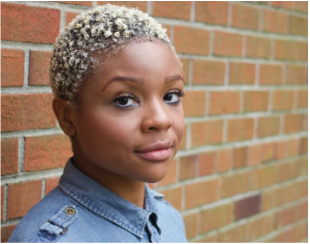 JACQUELINE LAWTON: To begin, why did you decide to get into theater? Was there someone or a particular show that inspired you? Meredith Noel: I have wanted to be an actress for as long as I knew what one was. I remember talking to my mother when I was five years old and she asked me what I wanted to be when I grew up and I told her, “I want to be a Ballerina-Motorcycle-Queen!” and she said, “I don’t think that’s a thing” and I said, “Well then I want to be in movies” JL: Set in Hampton, Virginia in the 1940s, THE HAMPTON YEARS examines the impact of World War II on Jewish immigrants living in the United States and their role in shaping the lives and careers of African American students in the segregated south.Why do you feel this play is relevant to today’s audiences? MN: At the center of the play are character’s struggling to find their place in society, to find their own voice as artists, and to relate to each other as human beings and not as stereotypes. It’s a very relevant story as the struggles and triumphs of the characters are timeless and relatable to people in any generation and of any age. JL: THE HAMPTON YEAR also investigates the various ways in which racism and bigotry negatively impact the arts, academia and military. Where do you feel we are in terms of race relations in the U.S.? MN: As of late, it would seem that we did not pass go nor did we collect our $200 in terms of race relations in this country. While it may seem that way, it isn’t true. The same struggles we’re having now are the same struggles we’ve always had as a nation. Except now, we have the information readily available to us at anytime and its right in the palm of our hand. We cannot turn a blind eye anymore or pretend these injustices aren’t happening. We are all now faced with the truth, which makes us all accountable. We have to do our best to not be apart of the problem. We have to be the ones who facilitate solutions and change. JL: Which character are you playing? What, if anything, do you have in common with this character’s passions, values, intentions or belief system? MN: I am playing Samella Sanders, now Lewis, in the show. I have much in common with Samella. She is a young woman who, throughout the play, goes on this journey of self discovery and is delivered from the words and prejudices others have placed on her to find who she is and her own voice as an artist. While being an actress is the only thing I ever really saw myself doing I allowed my family, much like Samella allowed Professors and scholars, to persuade me that I couldn’t and shouldn’t do that. It took the support of people who believed in my talents and for me to have faith in myself to finally admit and pursue my passion. Samella had Viktor and Elizabeth in the world of the play to help her realize her potential and I had Dr. Clarence Murray, Brando Lindsy and Anthony Stockard to help me realize mine. JL: What do you hope audiences walk away thinking about after experiencing this play? MN: I hope audiences realize the rich culture and history of the Tidewater region, I hope they walk away ready to have honest and productive dialogue about art, relating to each other with understanding and patience, and about ways to affect positive change in the city around them and I hope they research these brilliant characters more to find out about who they became and the phenomenal work that they have done. JL: What’s next for you as an actor? Where can we follow your work? MN: Well I am a student actor. I am a senior at Norfolk State University so you can always visit our website, nsutheatre.com, to see what we’re up to next. Some coming attractions: will be doing an original piece which is a tribute for Martin Luther King, Jr. and we will also be holding a Sonnet Salute for the 400th anniversary of Shakespeare’s death. Also we will be having a one act play festival where each student in our directing class will be responsible for casting and directing their own one act play. In addition to that I have professional auditions coming up in March for SETC. If you care to follow me on social media my Instgram handle is meredithnoel, my Facebook is Meredith Noel Johnson and my Snapchat is themeredithnoel. Meredith Noël Johnson is a native of Baltimore, Maryland and the youngest of five siblings. She is a senior at Norfolk State University studying English with a concentration in Theatre. At Norfolk State, she is a member of the NSU Theatre Company and has performed in such shows as: A Raisin in the Sun as Ruth Younger, For Colored Girls as Lady in Red, and Lady Day at Emerson's Bar and Grill as Billie Holiday. She is very excited to be performing in her first production in The Wells Theatre with the Virginia Stage Company.
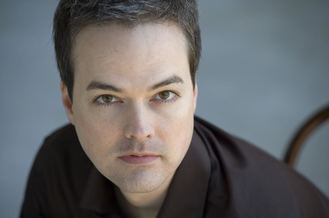 JACQUELINE LAWTON: To begin, why did you decide to get into theater? Was there someone or a particular show that inspired you? ERIC HARRELL: I wish I had a more “artsy” story to tell here, but I got into theatre for a girl. I auditioned for Grease in high school because a girl I had a crush on was in the show. It worked. I got a date and launched a rewarding career in the theatre. All in all, a good bet. JL: Set in Hampton, Virginia in the 1940s, THE HAMPTON YEARS examines the impact of World War II on Jewish immigrants living in the United States and their role in shaping the lives and careers of African American students in the segregated south. Why do you feel this play is relevant to today’s audiences? EH: The characters of this play all share a desire to advance the cause of African American artists. Where they differ is in their approach. The activist artist seeks to confront the systems of oppression; the university administrator works for change within the established systems; and the educator negotiates between the two. Ultimately, it takes all three approaches to create change. Perhaps there’s a lesson in there for us today. Solving complex problems requires a unified goal but multi-faceted strategies. JL: THE HAMPTON YEAR also investigates the various ways in which racism and bigotry negatively impact the arts, academia and military. Where do you feel we are in terms of race relations in the U.S.? EH: The onion has so many layers. Peeling away the top ones reveals the buried ones. At times, it feels like we’re working on the deeper layers of the problem; at other times, it feels like we’ve been stuck on the same layer for lifetimes. One positive evolution is that the national conversation has been enhanced by diverse perspectives. There are some passionate, intelligent voices speaking today who are not only challenging the tentacles of racism but also proposing solutions and helping us establish a new vocabulary to confront the issues we face. I do believe the conversation is maturing. JL: Which character are you playing? What, if anything, do you have in common with this character’s passions, values, intentions or belief system? EH: I play Dr. Malcolm MacLean, president of Hampton Institute. I’ve spent the past fifteen years in higher education as a theatre professor. I know first-hand the challenge of translating the language of artistry into “academic speak,” and more specifically, “administrator speak.” Over time, I have become increasingly sympathetic to the work of university administrators who must balance educational aims with the practicalities of operating a solvent business. It’s definitely a unique experience for me to play the university administrator since I am normally on the other side of the table, but I understand the perspective…well. JL: What do you hope audiences walk away thinking about after experiencing this play? EH: We’ve had so many wonderful, invigorating conversations in rehearsal. There are many challenging ideas to chew on in this story; it’s dense. I wish I could be a fly on the wall to hear what “sticks” in the minds of our audiences. Ultimately, I hope they will walk away thinking about the ways that we as human beings deposit kindness, respect and empathy in the lives of others, and of course, how we can do that better. JL: What’s next for you as an actor? Where can we follow your work? EH: I serve as the Producing Artistic Director of Tidewater Stage, a professional summer company here in Hampton Roads. We are moving into our production season so I’m taking off my actor hat for the next several months to produce our summer shows. Eric Harrell recently appeared as George Deever in VSC’s All My Sons. He is the Producing Artistic Director of Tidewater Stage, the professional summer theatre of Regent University, and teaches full-time in Regent’s MFA Acting Program. Recent directing credits include I Do! I Do!, Pump Boys and Dinettes and Forever Plaid with Tidewater Stage and Wait Until Dark, Bus Stop and The Glass Menagerie with Regent Theatre. He holds an MFA degree in Acting and has been a member of Actors Equity Association for 15 years. Some favorite acting credits include Indiscretions (Michael), Barefoot in the Park (Paul), An Inch of Rope (Kyle), As You Like It (Orlando) and Look Back in Anger (Jimmy). He performs in memory of the greatest mom a son could ask for. Much love to Holly, Naomi, and Judah.
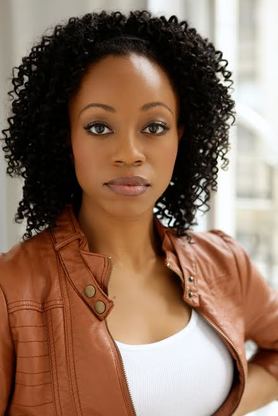 JACQUELINE LAWTON: To begin, why did you decide to get into theater? Was there someone or a particular show that inspired you? CHANDRA THOMAS: I was first introduced to theatre at a very young age as my mom took me to my first Broadway production when I was maybe 4 or 5 years old. But it wasn't until a middle-school classmate "dared" me to try out for the seventh grade musical production of "The Emperor's New Clothes" that I discovered the thrill and excitement of being part of a play. This all laid the foundation for when I saw the original production of "Rent" and became a fully certified "Renthead"-- yes, the ones who slept outside of the theatre to be first in line for front row tickets [laughs]. The show sparked my "I am deciding to get into theatre" turning point. Despite having seen and been a part of quite a bit of theatre by that early age, it was the first time I saw people who looked and talked and acted like the people I knew and grew up with and faced problems that seemed visceral and contemporary to me. It was the show that gave me the gust to say aloud that i, my voice, and the stories of people who I cherish belong on the stage too. JL: Set in Hampton, Virginia in the 1940s, THE HAMPTON YEARS examines the impact of World War II on Jewish immigrants living in the United States and their role in shaping the lives and careers of African American students in the segregated south. Why do you feel this play is relevant to today’s audiences? CT: So many of the themes that you reference in that description and that resonate in the entire play are so alive and at the forefront of "right now": people being displaced because of violent strife in their homeland, the necessity of collaboration in speaking out against unjust systems, the vital role of educational institutions in not only preparing young people to enter the "real" world, but to empower them to define it. JL: THE HAMPTON YEAR also investigates the various ways in which racism and bigotry negatively impact the arts, academia and military. Where do you feel we are in terms of race relations in the U.S.? CT: I will respond to this question with two quotes from the play-- My character, Elizabeth Catlett: "One day... our work will transcend race. People, who don't looks like us, who disregard us, will be able to see themselves in our art." And from John Biggers, one of her young art students of African descent: "I mean no disrespect, but how long are we supposed to be okay with better than before?... some of us can't afford to wait." JL: Which character are you playing? What, if anything, do you have in common with this character’s passions, values, intentions or belief system? CT: I play Elizabeth Catlett. There are several points of meeting between Elizabeth and me. The one that's really been playing in my mind of late is our shared belief about how resistance and political movement must come in MANY different forms. JL: What do you hope audiences walk away thinking about after experiencing this play? CT: I hope they walk away with the vibration of just how "right now" so many of the questions and problems in this play are... JL: What’s next for you as an actor? Where can we follow your work? CT: It's very easy to follow my work via my website: www.chandrathomas.com. You can also find me on Twitter (@truechandra) and Facebook (www.facebook.com/chandrathomas). Originally from New York, chandra thomas works in theatre, film, television, and new media. Theatre performances include contemporary and classic works Off-Broadway, in New York, and regionally at New York Theatre Workshop, Public Theater, Tectonic Theater Project, Barrow Group Theatre, PS 122, Guthrie Theater, CenterStage, Denver Theater Center, Alliance Theatre, and others. Film, television, and new media credits include Labor Day (with Kate Winslet), Sweet Lorraine (with Tatum O'Neal), Law & Order: SVU, The Good Wife, Too Big to Fail, and Complete Sentences?, among others. She is also a writer and arts educator, including co-founding viBe Theater Experience, an award-winning, arts non-profit empowering teenage girls in New York City. More at www.chandrathomas.com and @truechandra on Twitter.
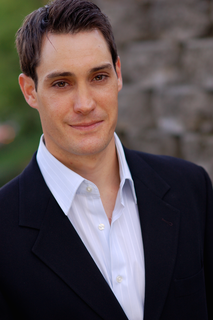 JACQUELINE LAWTON: To begin, why did you decide to get into theater? Was there someone or a particular show that inspired you? ADAM GREER: I got into theater more or less by accident... Literally. I played soccer up until high school but was unable to tryout for the team my freshman year because I had torn a tendon in my ankle. my brother was in the theater department an encouraged my to audition for the all school musical that year. I had been in the choir in middle school and thought I'd give it a shot. I remember, vividly, making my first exit after opening night: the adrenaline rush, the exhilaration was overpowering. I was offered a small role in the next play (William Saroyan's The Time of your Life) and never looked back. It was our high school drama teacher, Mike Harrison, who made all the difference. He instilled in all his students a reverence for the theater, a passion, a work ethic and drive that I've tried to carry with me all my life. JL: Set in Hampton, Virginia in the 1940s, THE HAMPTON YEARS examines the impact of World War II on Jewish immigrants living in the United States and their role in shaping the lives and careers of African American students in the segregated south.Why do you feel this play is relevant to today’s audiences? AG: First of all, the desire to create art, and the ability of art to question, reflect, or even change society is an universal and timeless necessity, it seems for humankind. we still struggle with bigotry and prejudice, and it is the duty of the serious artist to fight these battles. For me, being an artist is largely about finding and celebrating the universality of the human experience. If, as an actor, I can use my imagination, my personal history, and experience to "become" as much as is possible someone else, I can begin to understand another person's (even a fictitious person's) longings, struggles and point of view. In drama school, we spent several months our first year doing a text analysis project, where we worked through a rehearsal process and character study of a play that we would never perform. One of the plays was August Wilson's Fences. For me to work on the character of Troy was an unbelievable and incredibly challenging prospect. This is a role I can never play. It would be insulting and infuriating to see in a staged production and rightly so. While I learned that the experience of a young black man from that period is something I could never, ever, ever completely understand or encompass, just putting myself, to the best of my imaginative and artistic abilities, I hope, bridges the gaps in some ways. I've gone a bit afield. This play is relevant now because obviously the struggle to explode the barriers of race and culture that separate and divide us is ongoing. The experience of art and creativity may be universal, but the setting of this play (1940s Virginia) provides the filter of an exceptional crucible of pressures which shaped the world of art and creativity: The looming savage inhumanity of Nazis and the stark reality that here in the US, systemic racism and institutionalized segregation were rampant and ingrained. We see, I hope, not merely how things were, and certainly not how far we've come, but rather how much work we still have to do. JL: THE HAMPTON YEARS also investigates the various ways in which racism and bigotry negatively impact the arts, academia and military. Where do you feel we are in terms of race relations in the U.S.? AG: As I just stated, still so far to go... I feel we are at a volatile and crucial boiling point. A new and modern movement seems to be coalescing. As more and more police brutalities are brought to light and documented, the issues of race and violence can no longer be denied, or ignored by a privileged and unimpacted (and even oblivious or ignorant) majority. There is a sense of welling anger, which is as troubling as it is necessary. I feel that issues are taking a national spotlight and it is less possible to be neutral, and that people who were never in the conversation or struggle are taking part, and that will, I hope, be a vehicle for constructive change... At the same time it feels like we are on the verge of an eruption or upheaval which will be necessary but tumultuous. JL: Which character are you playing? What, if anything, do you have in common with this character’s passions, values, intentions or belief system? AG: I am privileged to be portraying Victor Lowenfeld. He is a driven and passionate scholar, teacher, and artist in his own right. His real life body of work is documented, so I will skip that here. I can say I admire his unrelenting mission to forge a pathway for his students as pioneering artists and representatives of their culture and history. He has suffered. He lost all but his immediate family to the Nazi scourge, and flees a society rife with horrors and the worst in humanity, only to arrive in a professed free society rife with resonances of the same institutionalized hatred and systematic oppression. Really I am using his intrepid resilience and willingness to start over, his overwhelming passion to begin anew and never quit as a personal inspiration. This is this first play I have been able to do in almost three years. As a father of three, my artistic career has had to take a back seat to my most important role: that of a grateful and proud parent. Viktor's seminal book, Creative and Mental Growth, which has been a standard for decades for art teachers and students, concerns the way children progress artistically and how their art reflects their psychological development. Spending the last eight years watching my childrem blossom and grow now feels now like extensive research into Viktor's mind. This year, as my kids have all begun their schooling, I came to the realization that after several years of dedicated fatherhood, I now have some time to re-dedicate to my career as an actor. I am in the process of rekindling my creative spark and the single minded determination, passion, and relentlessness that my character brings to his art and classroom serendipitously both mirrors and fuels my own JL:What do you hope audiences walk away thinking about after experiencing this play? AG: I don't want to manage the audiences thoughts. Art is inherently interpretive. I hope that they walk away not only thinking, but discussing their thoughts. I hope this play creates dialogue. I hope that the ideas of race, history, creativity, the process of creation, and whatever they may bring to the experience from their own lives collide, mingle, and become change, no matter how slight. JL: What’s next for you as an actor? Where can we follow your work? AG: I honestly have no idea. After this time away I am going to hug my kids in a desperate way they won't understand. I am going to take my wife to the Bahamas (no kids!). And I am going to try to keep the flame of inspiration I feel working on this rich and complex play burning bright in my artistic soul. Adam Greer has appeared on Broadway in Mary Stuart and Cymbeline (Lincoln Center). Other New York productions include Look Back in Anger at the Roundabout, Hamlet and Cymbeline at the Public Theatre/NYSF, What you get/Expect at NY Theater Workshop, and Straight Jacket, which premiered at Playhouse 91 and was subsequently made into a feature film in which Mr.Greer reprised his leading role. Regional highlights include Cabaret (Engeman), I Witness (MarkTaper), Rough Crossing (Old Globe), The Triumph of Love (Seattle Rep, Longwharf), Fly (Crossroads), It Pays to Advertise (Yale Rep), Agamemnon (Getty Villa), A Midsummer Night's Dream (PittsburghPublic), and several productions at the Guthrie Theatre including Julius Caesar, The Invention of Love, and Death of a Salesman (which traveled to the Gaiety Theatre as part of the Dublin Theater Festival). He performed at the Kennedy Center in An Evening of Romeo and Juliet with the National Symphony Orchestra, and other film and TV credits include Winter of Frozen Dreams, Law & Order SVU, Guiding Light, and As the World Turns. Mr. Greer is a graduate of the Juilliard School.
Recently, I had the opportunity to connect with costume designer LeVonne Lindsay about her process and work on Virginia Stage Company's upcoming production of The Hampton Years. She spoke candidly about what inspired her to work in theatre, her creative process, and generously offers advice for emerging designers. Additionally, she was kind enough to share her research and renderings for The Hampton Years. Please enjoy this interview and her beautiful work. Interview with LeVonne Lindsay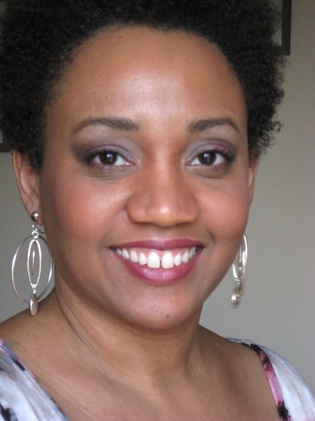 Jacqueline Lawton: To begin, tell me how long you have been a costume designer. What inspired to work in the theatre? LeVonne Lindsay: Technically, I began my career as a costume designer shortly after I graduated from Philadelphia University in 1992 with a degree in Fashion Design. I became interested in getting involved with theater after I took an elective class in performing arts and I had been volunteering and a community theater during my summers. The transition from stage crew to costumer didn't take me long once they discovered I knew how to sew. JL: What excited you about designing costumes for THE HAMPTON YEARS at Virginia Stage Company? LL: I took a break from costume designing for the past few years once I began my position as shop manager at The University of the Arts. I simply didn't have the free time or the project didn't interest me enough to make the effort. The Hampton Years came at the perfect time and we had just been discussing finding the right opportunity to work together. 1940s Americana falls right into my wheelhouse for costuming, particularly when it comes to Black History. Everything about this play felt so serendipitous, I could not resist. JL: How did you prepare for the costume designs for THE HAMPTON YEARS? How much research goes into it before you even sketch your first drawing? LL: First I refresh my basic knowledge of costume history for the time period. In this case, I knew I was dealing with non-fictional characters so I felt their costumes should try to ring true to their image as well. I also have to break down the script to create a costume plot and account for all the changes and how they could best be handled. For instance, I chose to change Samella from a skirt into a pair of culottes rather than slacks or jeans so she could get in and out of them without taking off her shoes. JL: Finally, what advice would you give a young person interested in becoming a costume designer? LL: Costume designing is not a job for anyone who gets easily discouraged. Costume designer are often faced with situations that make our job seem like an afterthought because clothing is so personal and readily available. Creating and producing costumes that fit well, function correctly and enhance the production, no matter what size the cast, is always a lot harder than it looks. The more skills that you acquire as a designer and a technician increases your chances of success in an extremely competitive field. If you are serious about working as a designer, you should choose the best grad school you can afford that will provide you the most connections. Once you've established yourself as a reputable designer, don't sell yourself short. You have to love what you do so much that you would do it for free while commanding enough respect to be paid what your contribution is actually worth. About LeVonne LindsayLeVonne Lindsay- B.S. in fashion design from Philadelphia University and M.F.A in costume design from University of Maryland, College Park. Teaching credits include: The University of the Arts Philadelphia, Stevenson University, James Madison University and Valdosta State University. Design credits include Arena Stage: Yellowman (Allen Lee Hughes Fellow, 2001-2003); 1st Stage Theatre- Almost Maine, An Italian American Reconciliation; Everyman Theatre: Crimes of the Heart, Topdog/Underdog, A Raisin in the Sun, The Brothers Size, Proof; Theatre of the 1st Amendment: 24-7-365 (Premier); African Continuum Theatre: Blues for an Alabama Sky, From the Mississippi Delta, Joe Turner’s Come and Gone, Blood Knot (Resident Designer 2002-2004); Theater Alliance: Black Nativity (2011); Hangar Theatre, NY- Gem of the Ocean Kennedy Center Theatre for Young Audiences- Jason Invisible, Locomotion, Handspeak, Color Me Dark; Imagination Stage: Mufaro’s Beautiful Daughters; Metrostage: Sidney Bechet Killed a Man, Three Sistahs, Sea Marks; University of Maryland Opera Studio: Tales of Hoffman/Clara. Related Experience: Stages St. Louis- Assistant Shop Manager; Washington National Opera- Assistant Costume Coordinator; Arena Stage- First Hand, Design Assistant; Perry-Mansfield Performing Arts School and Camp- Costume Shop Manager, Cutter/Draper; Shakespeare Theater Company- Publicity Costume Stylist; Wolftrap Opera Company- Assistant Shop Manager. Costume Research and Design by LeVonne Lindsay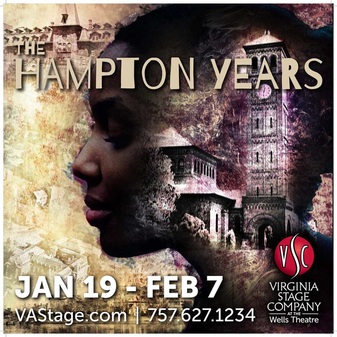 Virginia Stage Company’s first production of 2016, The Hampton Years, explores the empowering nature of art through the journey of two students and their professors. Set at Hampton Institute (now Hampton University) in the 1940s, the production examines society’s expectations surrounding African American artists. Based on the true story of students John Biggers and Samella Sanders, The Hampton Years follows their struggle to find their unique voices. As these students discover themselves they challenge their place in society by defining what it means to be an artist. This original work by playwright Jacqueline E. Lawton will receive its second production at the historic Wells Theater just down the road from Hampton University where these heroic students made history. The Hampton Years celebrates the galvanizing power of creation in the community where it all began. As John and Samella work on their groundbreaking exhibition, audiences will become immersed in the multimedia journey of the artists. Directed by Chris Hanna with dramaturgy by Jules Odendahl-James, the cast of The Hamptons Years includes: Viktor Lowenfield......................................................................................................ADAM GREER* John Biggers.......................................................................................................................TRE DAVIS* Samella Sanders.............................................................................................MEREDITH JOHNSON Elizabeth Catlett............................................................................................CHANDRA THOMAS* President Malcolm Shaw Maclean........................................................................ERIC HARRELL* *Member of Actors’ Equity Association the Union of Professional Actors and Stage Managers in the United States. The Hampton Years begins with three discounted preview performances, January 19-21, and officially opens on January 22. After 21 performances, the production will conclude on February 7. Tickets for each show start as low as $19, a radically different price than in seasons past. The best seats in the Theatre are available for $55 with discounts for groups, students, and the military. Click here to purchase tickets. Virginia Stage Company is Southeastern Virginia’s leading theater destination, serving an audience of over 70,000 annually both at the Wells Theatre and throughout the community. VSC's mission is to "enrich, educate, and entertain the region by creating and producing theatrical art of the highest quality.” |
My BlogI'm a playwright, dramaturg, and teaching artist. It is here where you'll find my queries and musings on life, theater and the world. My posts advocate for diversity, inclusion, and equity in the American Theatre and updates on my own work. Please enjoy!
Categories
All
Archives
June 2020
Reading List
|


